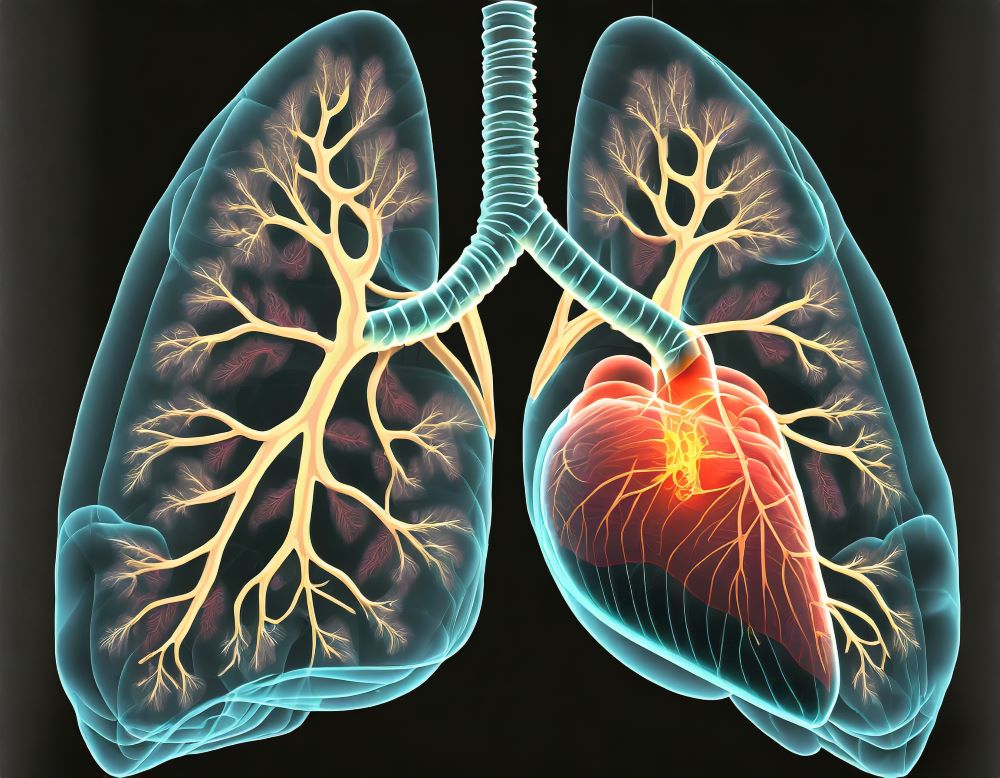Cardiac Cough and Cardiovascular Health: Understanding the Warning Signs

Coughing is a common reflex that helps clear the lungs and throat, but did you know it could be more? There is research to suggest that coughing might be related to heart health, especially when it’s a persistent cough.
If left unchecked, this could result in heart failure. This article will review the link between coughing and heart problems, focusing on the symptoms of what is known as cardiac cough and the early signs of heart disease in men and women.
What Is Cardiac Cough?
One of the body’s natural defenses against irritation is coughing, which helps clear the lungs of mucus, dust, and other pollutants. Coughing happens because sensory receptors in the lungs send messages to the brain when they find something irritating, like smoke, dust, or mucus.
This makes the brain start the cough reaction, which removes the irritants and keeps the airways clear. When we cough, our chest and diaphragm muscles tighten to rid our body of whatever irritates it.
Regarding cardiac cough, the body is responding to pulmonary edema, a condition brought on by heart failure-related heart muscle dysfunction. This condition causes fluid to pool in your lungs, which your body tries to eliminate by coughing.
Symptoms of Cardiac Cough
It can be hard to diagnose cardiac cough from regular coughing, especially for those who struggle with respiratory illnesses or allergies, but there are a few indicators that should alert you to talk with your physician.
- Worsening at Night: Coughing that gets worse at night and keeps you from sleeping.
- Pink or White Phlegm: Coughing up foamy or bloody phlegm could indicate heart failure.
- Cough Caused by Physical Activity: Coughing that starts or gets worse when you work out could mean your heart is under a lot of stress.
- Heavy Wheezing: The inability to catch your breath, along with coughing, could be a sign of trouble.
- Dry Cough: A persistent dry cough, particularly when you’re not prone to coughing.
Early Signs of Heart Disease in Men
Heart disease kills more men than any other illness, which is why it’s vital to know what signs to look for. Recognizing these signs may help prevent the issue from getting worse or at least give you the chance to take steps toward managing the condition.
Some Early Symptoms That Point Toward Heart Problems For Men Are:
- Chest Discomfort: This is described as pressure or tightness in your chest.
- Shortness of Breath: This isn’t related to shortness after working out but rather a feeling of being out of breath during normal activities.
- Fatigue: If you’ve felt more tired than usual or notice you’re weak more often than not for no clear reason, you might be headed toward heart failure.
- Irregular Beating: If you have heart palpitations or an irregular beating, it could mean that you have a heart problem.
- Radiating Pain: This could be true pain or discomfort that spreads to the back, arms, neck, jaw, or teeth.
Heart Problem Symptoms in Women
Not that long ago, heart failure for both men and women was lumped into one category. However, it’s now known that heart failure symptoms for women might not be the same as they are for men.
Unfortunately, many of these signs may seem minor initially, with their true nature not being clear until the symptoms start adding up. For this reason, it’s important to be mindful from the start.
Some of the Most Common Signs of Heart Failure in Women Are Listed Below:
- Shortness of Breath: Trouble breathing or feeling short of breath, especially when you’re moving around or sitting down, could be a sign that something isn’t right.
- Swelling: Pulmonary edema might cause swelling in areas like the stomach, wrists, legs, or feet.
- Consistent Coughing: As noted above, if you’re struggling with coughing or wheezing that doesn’t go away or have the signs of cardiac cough listed above, you should talk with your physician.
- Nausea or Vomiting: You might also have a loss of appetite due to these issues.
- Pain: Instead of chest pain, women often feel pain in their jaw, neck, throat, back, and upper stomach area. Unfortunately, this wide range of pain could be attributed to many other conditions, which is why it might not signal a heart issue at first.
Final Notes
While you might not have known the relationship between coughing and cardiovascular health before, now that you do know, you can watch for signs of cardiac cough. Along with this knowledge, understanding the early signs of heart failure in both men and women can help you keep yourself and your loved ones safe.
If you or someone you know has any of the signs listed above, it’s essential to take the next step and reach out to the doctor for more testing.


